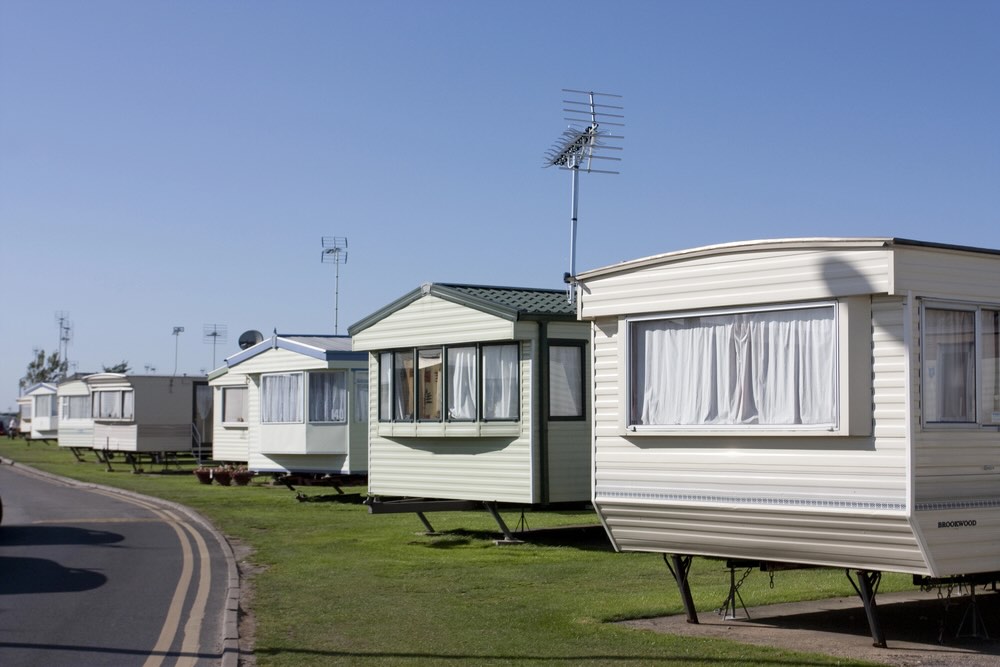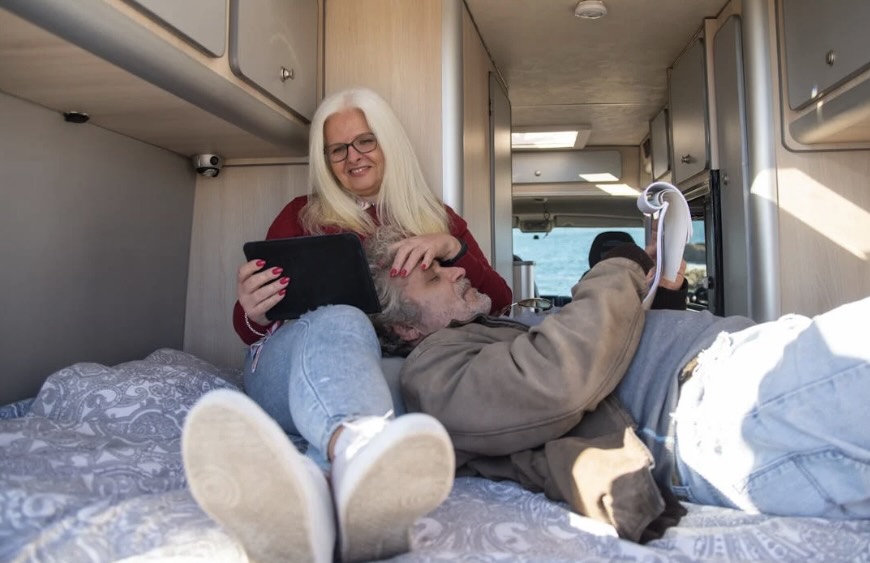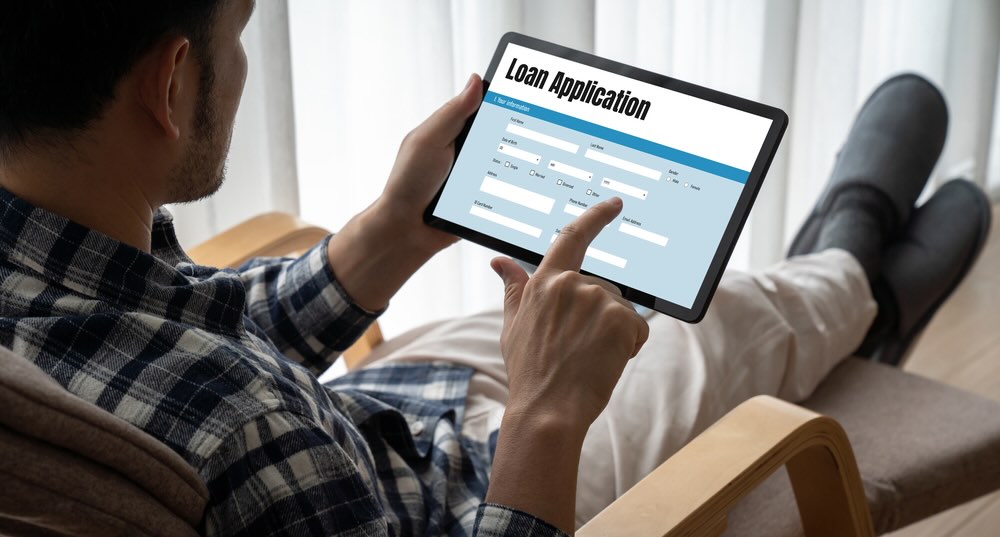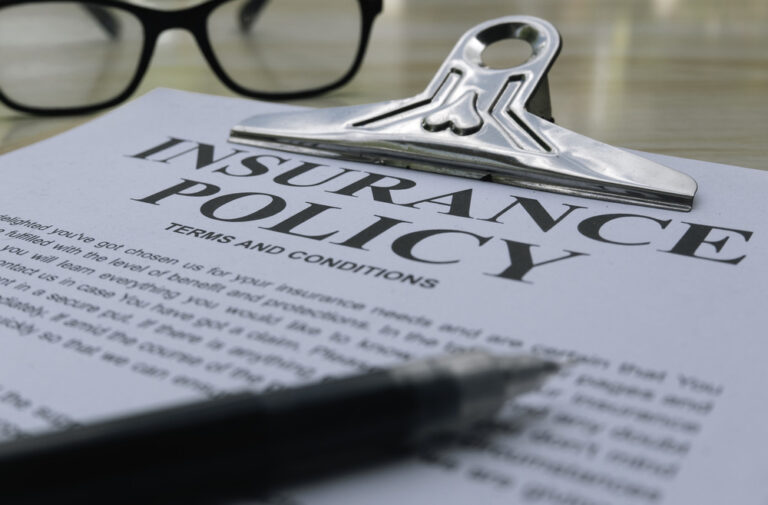Static caravan finance is a term used to describe any finance product that’s designed for people buying static caravans. It’s most commonly used to describe finance packages built with a holiday home in mind – but the term is sometimes also used to include personal loans and other finance options people use to purchase a caravan.
In this guide, we’ll take a completely impartial look at all the finance options available if you’re thinking about buying a static caravan. We’ll explore the pros and cons of each option, as well as looking at some specialist packages – including guaranteed finance, bad credit options, and the kind of deposit you’ll typically need.
We’ll also provide some static caravan finance eligibility checker guidelines – so you can get an idea about what finance companies are looking for when you apply.
Static Caravan Finance: Important Note
Before we start, it’s important to note that we’re not making recommendations in this article – we’re simply laying out the options that people typically choose from when buying a static caravan.
Everyone’s finances are different – so what works for one person might not work for you. As such, you should consider all the options carefully and consider professional financial advice – after all, a caravan should enhance your leisure time, not be a source of financial stress!
How Do I Finance a Static Caravan?

If you’re thinking about static caravan finance, you’re definitely not alone. The HPE team has worked in holiday park caravan sales positions since 2004, and in that time, over 95% of customers purchasing caravans have used some type of finance agreement.
There are plenty of options available if you’d like to explore caravan finance, including:
- Dedicated hire purchase agreements
- Personal loans (including unsecured and secured options)
- Credit cards
- Equity release from your home
- 0% finance special offers
- Guaranteed finance agreements
Spoiler alert – there’s no stand-out option here that’s the perfect solution for everyone. Instead, each option has pros and cons and will suit different people. As such, this next section explores each option in detail – including the advantages and possible disadvantages of each.
Static Caravan Finance Options
Take a detailed look at the most common ways of financing a static caravan:
Static Caravan Hire Purchase Agreement

The most popular static caravan finance option is an agreement with one of the finance companies that has a relationship with the park you’re buying on. Typically, a park will have a relationship with at least one lender.
Although not always referred to as “hire purchase”, most caravan finance packages are HP – where the price of the caravan is divided up over a certain number of months. All hire purchase agreements require the applicant to provide a deposit – and it’s usually at least 20% of the overall caravan package price.
If you have more deposit to put down, this simply reduces the amount you’re financing, leading to more affordable monthly payments and less interest in the long term.
The term over which you borrow money as part of a static caravan HP agreement is flexible – with options usually between 12-84 months. Although the term will often depend on the age of the caravan and the age of the applicant.
Pros
- A dedicated caravan finance option that doesn’t tie up other credit streams
- Uses the caravan as security – and this is often reflected in a lower rate
- Adjustable deposit amounts allow for different monthly repayments
- 7-year term is often longer than personal loan terms
- Makes it easy to upgrade your caravan in the future
- Usually the quickest option
Cons
- You’ll need a deposit upfront – usually at least 20%
- Maximum 7-year term might be restrictive
Unsecured Personal Loan for Static Caravan

Although not strictly static caravan finance, lots of people explore unsecured personal loans as a way of purchasing a holiday home.
This process wouldn’t be overseen by the park and would typically involve an offer of a loan from your bank or another lender. This allows for lots of freedom – as one application means you can secure the loan in principle and then go shopping for a caravan. However, since caravans are usually a big purchase, it can mean tying up a lot of available credit on one purchase.
Depending on your credit rating, you might find that a personal loan is available at an especially attractive rate – although the rate advertised could be reserved for only the best credit ratings, so it’s important to get a quote before you pin your hopes on a certain monthly repayments or an overall figure.
Pros
- Can often be a better rate than hire purchase packages
- One application can secure the loan, then you have the option of different parks and statics
Cons
- Can make getting further finance for a caravan upgrade trickier
- The size of the loan often makes it harder to get personal loans for other things
Secured Loans for Static Caravans

A secured loan is one that’s tied to something you own – often your home. As such, remortgages and further advances on your home are often the most popular type of secured loans.
When it comes to remortgaging, it’s absolutely essential that you get advice from a lender or a qualified third-party. This is especially important when you buy a static caravan because of the difference between homes and caravans – while the former usually increases in value, caravans depreciate over time, so not everyone wants to borrow money that could be growing to buy something that goes down in value.
Since a secured loan is tied to your home or another asset, the rate is typically lower, since the lender is taking less of a risk.
Secured loans often take a number of weeks or months to move from the initial application to the release of the money into your account – and there’s often a lot of calls and paperwork to do in that time. This sometimes makes them impractical for buying a caravan – especially if the park is in demand and the salesperson can only hold your caravan for so long.
Pros
- Often the lowest rate way to borrow money to finance a caravan
- Is often paid back over a very long term, keeping payments low
Cons
- Length of term often means you’re paying a lot of interest, even at a low rate
- Takes equity from another source (often your home) and ties it to a depreciating caravan
- Can take a long time to set up and release funds
0% Finance

0% finance is fairly rare – but it’s worth thinking about, especially if you have a sizeable deposit or the means to buy a caravan outright with savings.
With a 0% finance deal, you don’t pay any interest. Instead, the amount you borrow is simply divided up over the number of months your borrowing for. There are often set-up fees of a few hundred pounds – but this is still usually the cheapest way to borrow money.
In many cases, it actually costs the caravan operator to offer this type of finance – but since it attracts people to the park, it does crop up now and again. Since the deposit amount required for a 0% deal is often quite high (sometimes 50% or more), this kind of package isn’t practical for everyone, but it can make sense if you want to keep money in the bank without paying a lot of interest on top of your monthly payments.
Pros
- No interest means you pay back only what you’ve borrowed
- Lets you keep cash in the bank for other needs
Cons
- Can be hard to find
- Might only be available with a very large deposit (often 50%)
- Is often reserved for people with the very best credit rating
Credit Cards

Some people use a credit card (or credit cards) to purchase or help purchase a static caravan. Although you might not have the full caravan package amount available on your cards, they are sometimes used for topping up the amount you can spend – handy if you see a caravan that you love but is a little above the amount you’ve budgeted for.
This is another area where it’s important to do the maths and work out if it will be right for you. Unlike most of the other options on this list, credit cards don’t have set repayment amounts or a repayment term – which means that you can end up with a long-lasting and expensive debt if you don’t pay them off.
Pros
- Credit card providers are often happy to extend your credit
- The funds can be available quickly
Cons
- Might not be enough to cover the full purchase, possibly requiring additional finance
- No fixed repayment term means you could end up paying a lot of interest
- Ties up your credit card use, limiting your payment options for other things
Equity Release

Equity release – also known as a “lifetime mortgage” – is a way of releasing the money you have tied up in a property – in some cases to buy a caravan holiday home. Designed for people in or approaching older age, these products often require no repayment – instead, the lender takes possession of your home to repay the debt when you move into a care home or pass away.
Equity release products have had a lot of bad press in the past – with untoward selling practices commonplace in the past. The industry has had a complete overhaul in recent years, making the products safer and surrounded by a lot of strict rules – but regardless, equity release is not something anyone should do without professional advice.
That said, lots of people do use equity release to enjoy their post-retirement years with plenty of time in their own caravan – often in very different surroundings to the home they own.
Pros
- Unlocks the equity you have in your home for leisure activities
- Lots of different options around how much is released and how it is paid to you
Cons
- Only available to homeowners over a certain age
- Passes ownership of your home over to a finance provider upon your passing or moving into care
- Can be more time-consuming to access funds compared to other finance options
Static Caravan Finance: Bad Credit Options

Millions of people across the UK have “bad credit” – another way of saying that their credit rating is a little lower than average or they’ve had financial problems in the past. Fortunately, there are finance companies who account for this with specialist finance agreements if your credit file could use a little work:
Guaranteed Static Caravan Finance
Guaranteed finance is a useful way for people with past financial issues to get their own caravan. What’s more, guaranteed finance can actually help to boost your credit score in time – proving that you can pay back what you’ve borrowed consistently.
Not all parks offer guaranteed finance – so if you’re worried about your credit history, it’s worth calling around and seeing what the park can offer before you commit to a visit. It’s actually worth noting that lots of people underestimate their credit score – so when you talk to salespeople on a park, they might suggest applying for mainstream finance to see if you can get a better rate.
Guaranteed finance typically costs more than standard finance – usually because the interest rate is higher. This is usually because the finance company is taking more of a risk lending to someone with a reduced credit score – but it’s never as astronomically high as the rates you see for payday loans or similar.
Although the term “guaranteed” might make you think it’s available to everyone, there are still certain criteria you’ll have to meet. For instance, you’ll need to be a UK resident, have no current CCJ or debt solution in place, and you’ll typically have to still find a deposit – which could be a little higher than the amount you’d need for standard HP. Despite this, guaranteed finance can be a way to access having your own holiday home even if you feel the odds are stacked against you.
Pros
- Suitable for people who have previous finance issues or no credit history
- Uses the caravan as security for the loan, so will often be cheaper than high-interest rate unsecured loans
Cons
- The interest rate will often be higher than other options
- The finance company will often start recovery proceedings quickly if you fall behind
- Usually not available if you have a current County Court Judgment (CCJ) or debt solution (IVA, Bankruptcy, etc)
Static Caravan Finance Eligibility Checker
Eligibility for finance will depend on the type of finance you’re considering. However, when applying for a hire purchase agreement on a static caravan (the type of package you’ll be offered at a holiday park), there are several typical eligibility guidelines you should be aware of:
Age Requirement:
- Applicants must usually be at least 18 years old. Some lenders may require you to be 21 or older.
Residency Status:
- You need to be a UK resident and have a permanent UK address. Proof of address, such as utility bills or bank statements, is often required.
Income and Employment:
- Regular income is a crucial factor. Lenders prefer applicants who are employed full-time, part-time, or self-employed with a stable income. Some lenders might also accept pension income or income that comes from certain types of benefits.
- Proof of income, such as recent payslips, bank statements, or tax returns, may be required.
Credit History:
- A good credit history increases the likelihood of approval. Lenders will check your credit score to assess your ability to make regular payments.
- While some lenders offer guaranteed hire purchase agreements to individuals with less-than-perfect credit, higher interest rates or a larger deposit might be required.
Deposit:
- A deposit is typically required, often ranging from 10% to 30% of the caravan’s price. A higher deposit can improve your chances of approval and may result in better terms.
Affordability Assessment:
- Lenders may sometimes require an assessment of your financial situation to ensure you can afford the monthly payments. This includes evaluating your income, expenses, and existing debts.
Documentation:
- You will need to provide various documents, such as identification (passport or driving licence), proof of address, and proof of income.
- Some lenders may require additional documentation, depending on their specific criteria.
Caravan Specifications:
- The static caravan itself may need to meet certain criteria, such as age and condition. Some lenders may only finance new or nearly new caravans, while others may be more flexible.
Guarantor:
- In some cases, having a guarantor can improve your chances of approval, especially if your credit history is not strong. The guarantor agrees to make the payments if you are unable to do so.
Static Caravan Finance Calculator

Most parks will have a handy finance calculator to hand that shows you clearly what you can expect to pay based on the deposit you have and the number of months you’d like to repay your loan over.
These calculations will change from park to park – since every park is likely to have a slightly different deal or a different finance provider.
If you’d like to start by exploring some monthly payments – either based on how much you can afford or how much you’d like to spend, check out this handy finance calculator on MoneySuperMarket.com.
Static Caravan Finance FAQs
Can I get static caravan finance if I get benefits?
It depends on a couple of different factors – usually how much you receive and what your outgoings are. Longer term benefits are often considered in the same way that a lender would consider an employed income – so if you’re income from benefits payments passes their affordability checks, they will often be happy to lend you the money for a static caravan.
It’s important to note that all finance companies have different rules – but the person you talk to on the park will usually understand these rules, so should be able to give you helpful advice.
Are PCP finance options available for caravans?
Unlike car finance or touring caravan finance, static caravan finance providers don’t usually offer personal contract purchase (PCP) plans. While these packages are a good way to secure a low cost monthly payment by opting for a final payment at the end of the term, they are better suited to cars and touring caravans – so we don’t know of any holiday parks that offer them.
That said, we’re always keeping on top of the latest happenings in the world of static caravans, so if a lender launches a PCP static caravan plan, we’ll write about it and tell you everything you need to know.
Is buying a static caravan on finance a good idea?
It depends on you! For many people, buying a static caravan through a finance agreement is a way to access a holiday lifestyle that would otherwise take many years to save for. That said, debt is a big source of stress for millions of people – so it’s important to weigh up whether or not a caravan finance package is going to be comfortable in the longer term.
Who are the main static caravan finance companies?
There are many great, reputable lenders in the static caravan finance world – with notable names being:
- Black Horse Finance
- Pegasus Finance
- Santander
There are also a range of credit brokers who can help you find products tailored to your needs and that are suitable for static caravan purchases.
Will finance providers take the potential rental income into consideration when I apply?
No, they won’t. Although it’s tempting to think of a caravan as a source of finance, income that you receive from letting typically won’t be considered part of your income. This is because it usually just isn’t enough to make you a large chunk of money above and beyond your running costs – especially if you want to spend plenty of time in your caravan!
Is finance for park homes the same as static caravan finance?
No, it’s usually a little different. This is because park homes are intended to be a residence that you live in, rather than a holiday home. Finance options for park homes can therefore often be over a longer term and for a greater amount than static caravan finance – and it’s a good idea to talk to a park home operator about what they offer.
Can I get static caravan finance over 10 years?
Not normally no. Typical caravan finance is over 7 years (84 months). There are a range of reasons behind this – but it often hinges around the age of the caravan itself. Beyond a certain age, a caravan will have depreciated significantly, meaning the finance provider doesn’t have much security – regardless of how lovely your older caravan is. Very occasionally, you will find 10-year finance plans – but they will tend to be for brand-new, high-value caravans.
Are there any static caravan finance no deposit options?
No, you’ll usually need to provide some level of deposit – often around 20%. This is because, when you buy a caravan, you’re actually buying a “caravan package” that includes site fees, connections, steps, safety checks, and lots more. Since the caravan is only part of the package cost (albeit a big part!) the finance company will typically only finance the price of the static itself – meaning a deposit will be needed.
Will I get a better price if I pay cash rather than take static caravan finance?
It’s unlikely. Although lots of people are of the belief that “cash is king” – caravan parks often actually earn a commission when you take one of their partner finance deals. Of course, this is weighed up against the fact that a cash purchase could be wrapped up in a single day – which is another attractive prospect for a park operator. The bottom line is – ask – you never know, and it costs nothing to see what puts you in the most advantageous position.
How can I find out if a park offers static caravan finance for poor credit applicants?
Call them. Ask them if they have any finance packages that are made for people with a lower credit rating. If they don’t, they won’t want to waste your time – but if they do, they’ll be able to talk to you about eligibility and what’s needed. That way, you’ve got a headstart compared to just turning up and asking later – and you can focus on parks that can definitely help you.
Static Caravan Finance: A Summary
There are lots of different options when it comes to paying for a static caravan. From dedicated hire purchase packages through to personal loans, credit cards, 0% interest deals, and even some very specialist personal finance products like equity release.
Typically though, when people talk about static finance, they’ll be referring to HP packages that are done in collaboration with a park’s partner finance company. For these packages, you’ll need a 20% deposit or more, and you’ll repay the full amount over a maximum of usually 7 years.
Like homes and mortgages or cars and car finance, almost all static caravan buyers use some kind of finance – and the salesperson you talk to should be familiar with all the options so you can get a static caravan finance package that’s exactly right for you and your wallet.


